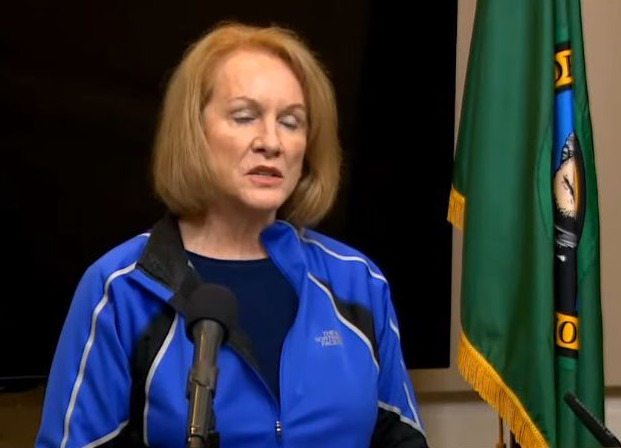
It was a really bad week for Seattle Mayor Jenny Durkan.
On Monday (June 15), in an expected response to the Black Lives Matter protests, the City Council approved a bill banning police use of a wide range of crowd-control weapons. The comprehensive list includes “kinetic impact projectiles, chemical irritants, acoustic weapons, directed-energy weapons, water cannons, disorientation devices, ultrasonic cannons or any other device.”
Among demands arising from the protests, taking these kinds of tools out of the hands of police met widespread approval as the public, stunned by the breadth of the protests nationally and the numbers of people involved here, began to weigh-in on what should be done.
Durkan heard this clamor from the streets, the public, and perhaps her own advisors. A week earlier she banned tear gas for 30 days. Nevertheless, that was far from enough to take control of the issue, to stand her up as a leader. Then, unfortunately, thanks to exceptions allowed in the order, Seattle police used tear gas again only a few days later.
Into the space Durkan left open roared the City Council with its ban on a broad range of police armaments that, as seen on TV and experienced on Pine Street, seemed at best overused, probably misused, and very much at variance with the de-escalation tactics police had learned in recent May Day demonstrations. The council’s bill was sponsored by Durkan’s nemesis, Councilmember Kshama Sawant, who on the issue easily claimed the leadership role from the mayor. It passed unanimously, 9-0.
Council 1, Durkan 0.
Then came Tuesday. Councilmember Teresa Mosqueda in a news conference announced a business-payroll tax plan to deal with Covid-19, homelessness, affordable housing, and income inequality. After some months of development, it’s meant to be a (little) tamer and (much) more palatable proposal than the one her colleagues Sawant and Tammy Morales have been pushing uphill for a year.
Unlike Sawant and Morales, though, Mosqueda did her homework. She did the politics, not the grandstanding, and, according to her news release, the plan was “crafted in collaboration with hundreds of Seattleites and diverse organizations.” Here’s a partial list: Housing Development Consortium, OneAmerica, Seattle University Homeless Rights Advocacy Project, Expedia, Ethan Stowell Restaurants, Ironworkers Local 86, United Food and Commercial Workers Local 21, and Service Employees International Union 775.
Business, labor and community groups. Many of them Durkan supporters from her 2017 election victory.
Council 2, Durkan 0.
Discover more from Post Alley
Subscribe to get the latest posts sent to your email.

Thanks, Dick…would love to see informed thoughts in Post Alley on CHAZ or CHOP or whatever it might be called next.
Dick
What will it take for Durkan to survive? And what could she do differently?